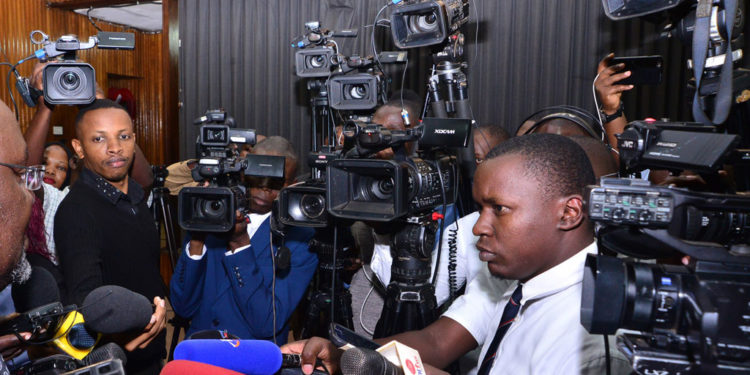Media houses have been urged to adopt gender-responsive mechanisms in order to address sexual harassment cases.
This after a report entitled “The gendered dimensions of journalists safety in Uganda, Kenya, and Tanzania”, conducted by Africa Freedom of Information Center (AFIC) between 2016-2021 indicated that female journalists are facing extreme acts of sexual harassment, sexism, and misogyny.
The lead researcher, Brian Mutebi, noted that female journalists also reported additional threats such as blackmail, body shaming, and false accusations of relationships with married men whom they interact with at work.
He also said that defamation and cyberattacks were more common among female journalists, affecting their personal lives and mental health.
The report recommends provision of legal and psychosocial support to journalists who have been victims of the above vices.
While presenting the research findings, Mutebi, a gender media consultant, said many journalists interviewed reported instances of being phone tracked and physically trailed by unknown individuals which hampers their independence, objectivity, and freedom of expression.
He also noted physical threats against journalists like beatings, arrests, imprisonment, and kidnaps during public protests.
According to the report, male journalists faced more physical threats compared the female. It was reported that security personnel treated female journalists more fairly due to their gender strength.
Meanwhile, journalists reported inadequate support from their employers in seeking justice or protection.








